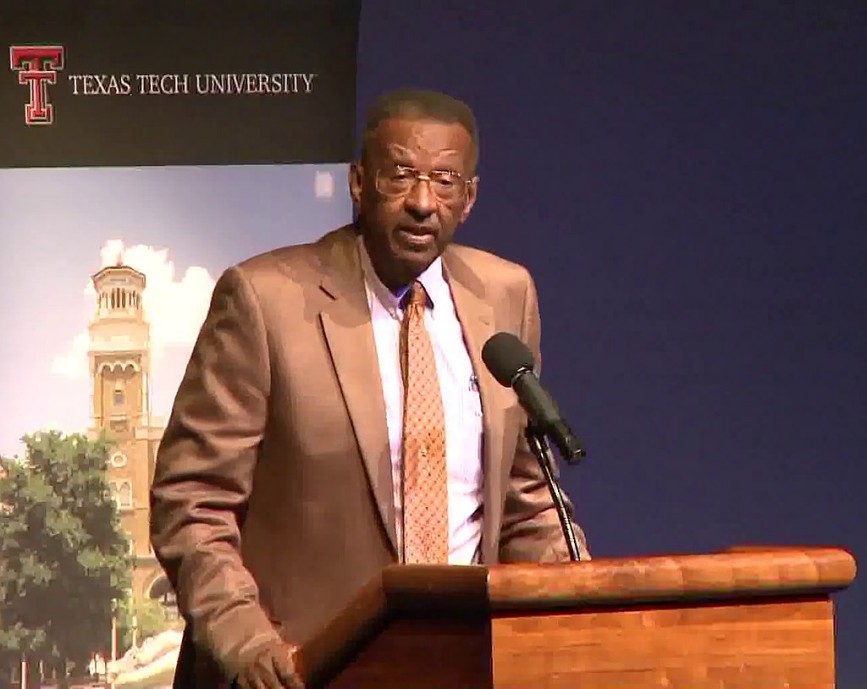On December 2, 2020, Walter E. Williams, a well-known economist, commentator, and professor at George Mason University, passed away at the age of 84. That same day, his friend and fellow economist Thomas Sowell, who I have written about here before, wrote a brief piece on the passing of his “best friend for half a century.” In this article, I will briefly examine some of Mr. Sowell’s remembrances of Mr. Williams as a professor, his objectivity in the classroom, and my own story on the importance of the latter point.

Sowell on Williams the Objective Professor
In Mr. Sowell’s obituary for his friend, he recounted that Mr. Williams had said that he hoped on whatever day he died, “he would have taught a class that day.” Mr. Sowell noted that Mr. Williams had indeed taught a class on December 2, 2020, before he passed away.
Mr. Williams was known to the public as an incisive commentator on issues of economics, politics, and race. Mr. Sowell noted that he was a successful author: “His book ‘Race and Economics’ is a must-read introduction to the subject. Amazon has it ranked 5th in sales among civil rights books, 9 years after it was published.” In addition to his books and media appearances, Mr. Williams maintained a nationally syndicated weekly column until his death, publishing his final article on December 2, 2020.
Given Mr. Williams’s strong views on the subjects he studied, one might suspect that he let those views seep into his classroom lectures. It is far from uncommon for students, from kindergarten to high school to college, to spend class time learning about the political views of their teachers and professors. This can have a stark effect on the impressionable minds of people who do not have the experience or reservoir of knowledge to examine the views of authority figures, a notion not lost on Mr. Sowell. Perhaps for that reason, Mr. Sowell began his obituary by noting not only Mr. Williams’s love for teaching, but also his objectivity in the classroom:
Unlike too many other teachers today, he made it a point never to impose his opinions on his students. Those who read his syndicated newspaper columns know that he expressed his opinions boldly and unequivocally there. But not in the classroom.
Thomas Sowell on Walter E. Williams
Reminding Me of My Own Objectivity in the Classroom Story
Mr. Sowell’s description of Mr. Williams as a teacher reminded me of one of my college professors at CUNY Brooklyn College. Victor took him as well, albeit we took his classes at different times.
The professor in question taught literature. With remarkable clarity, he worked through classic works of literature with the class line-by-line, only assigning a small number of books and plays each semester in order that our class could devote the time necessary to each in order to understand it. Beyond teaching how to understand each individual work, he taught the class how to read well and think clearly. He emphasized, again and again, the importance of “clear thinking.”
On teaching literature, I can best describe the Professor’s view by quoting from John Ruskin’s “Sesame” lecture:
[B]e sure that you go to the author and get at HIS meaning, not to find yours. Judge it afterwards if you think yourself qualified to do so; but ascertain it first.
John Ruskin
My professor explained that in each great work of literature, the author tells the reader how he or she thinks people should live. In each work we studied, we worked to ascertain the author’s meaning, nothing more. My professor expressly explained that his job was to teach what the author of a given work meant. He added that if we came to understand from his teaching what he thought about what the author meant, that would mean that he was a bad professor.
The Professor was less shy about opining on writing quality. For example, we studied Jean Racine’s Phedre, a work that my Professor praised extensively,but still criticized because of the author’s failure to fully explain Phèdre’s actions. On Racine’s point of view as expressed in the play, however, my Professor ventured no opinion.
Final Thoughts
Mr. Williams was a thought-provoking and learned writer and commentator for many decades. For those who are interested in studying his works in a manner similar to how he and my literature professor studied the works of others, Mr. Williams leaves behind many columns, books, papers, and interviews.
In the obituary, Mr. Sowell noted that he had chosen Mr. Williams as his literary executor, both because he trusted him more than anyone and because Mr. Williams was younger. Sowell continued: “But his death is a reminder that no one really has anything to say about such things.” Mr. Williams lived long and lived well. Rest in peace.